Practice Tools
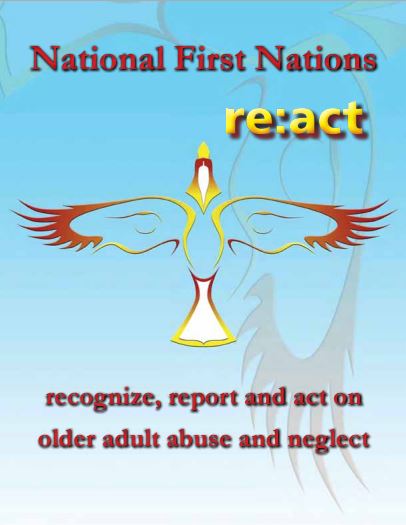
• Community Health and Human Service Workers
• Designated Agencies (Health Authorities, Adult Protection Services)
• Community Response Networks (CRN’s)
• Police & Victim Services
• Public Guardian & Trustee Offices"
Source: Vancouver Coastal Health
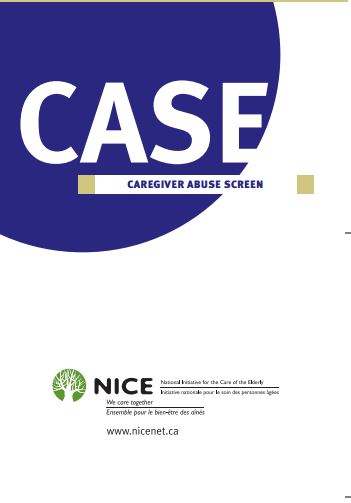
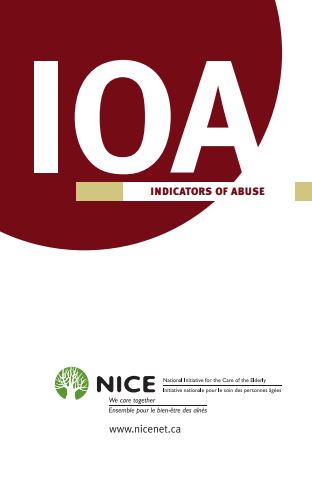
The following is part of our project “Increasing Access to Justice for Older Adult Victims of Sexual Assault: A Capacity Building Approach”, funded by the Justice Canada Victims Fund.Learn more about this project or consult the full list of resources
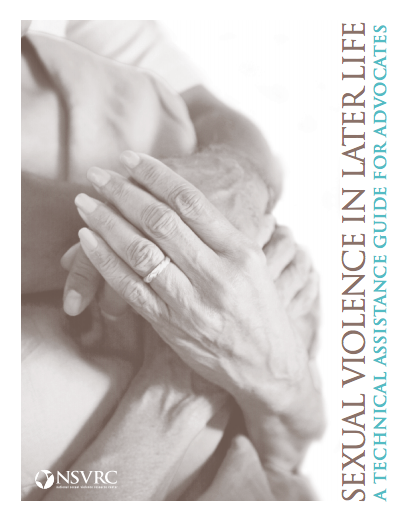 "This guide thoroughly investigates the complexity of the topic [sexual violence in later life] and includes information on signs and symptoms, special issues facing older victims, and primary prevention techniques. This packet was developed by Holly Ramsey-Klawsnik, Phd, in conjunction with the National Sexual Violence Resource Center. The packet includes a fact sheet, technical assistance bulletin, technical assistance guide, resource list, annotated bibliography, research brief, and an online collection."
"This guide thoroughly investigates the complexity of the topic [sexual violence in later life] and includes information on signs and symptoms, special issues facing older victims, and primary prevention techniques. This packet was developed by Holly Ramsey-Klawsnik, Phd, in conjunction with the National Sexual Violence Resource Center. The packet includes a fact sheet, technical assistance bulletin, technical assistance guide, resource list, annotated bibliography, research brief, and an online collection."
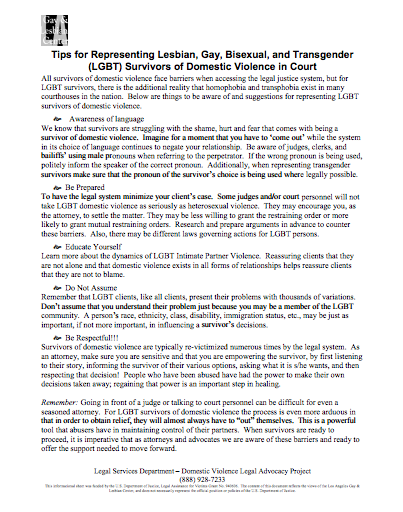 "Some judges and/or court personnel will not take LGBT domestic violence as seriously as heterosexual violence. They may encourage you, as the attorney, to settle the matter. They may be less willing to grant the restraining order or more likely to grant mutual restraining orders. Research and prepare arguments in advance to counter these barriers. Also, there may be different laws governing actions for LGBT persons.
"Some judges and/or court personnel will not take LGBT domestic violence as seriously as heterosexual violence. They may encourage you, as the attorney, to settle the matter. They may be less willing to grant the restraining order or more likely to grant mutual restraining orders. Research and prepare arguments in advance to counter these barriers. Also, there may be different laws governing actions for LGBT persons.
This is a short tip sheet for attorneys working with LGBT domestic violence cases."
Source: Legal Services Department – Domestic Violence Legal Advocacy Project (USA); National Resource Center on LGBT Aging (USA)
Page 13 of 15
















